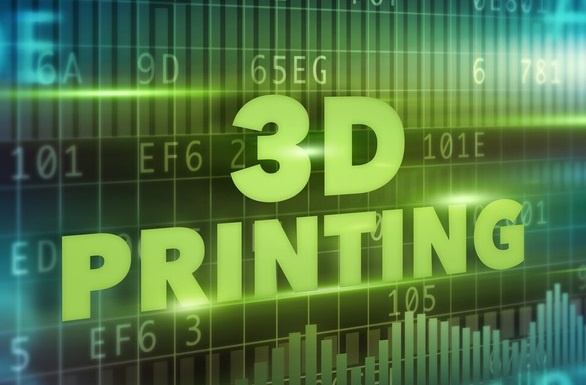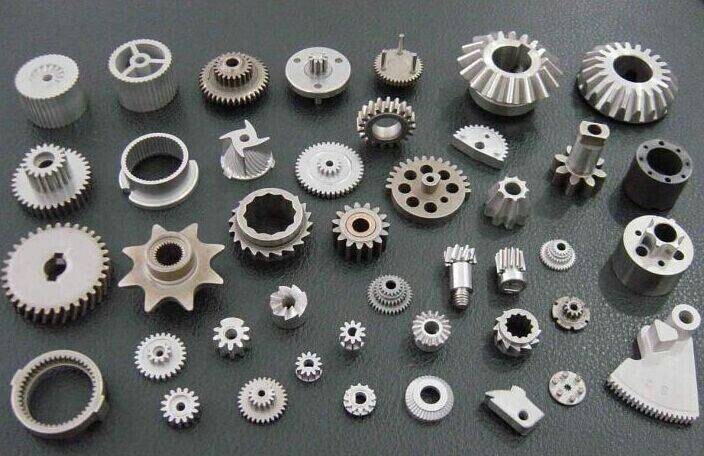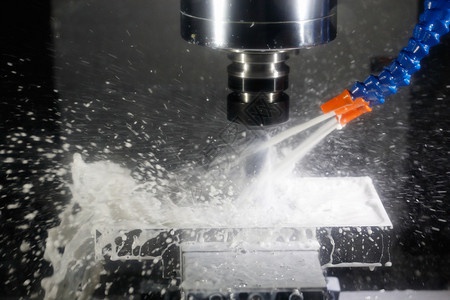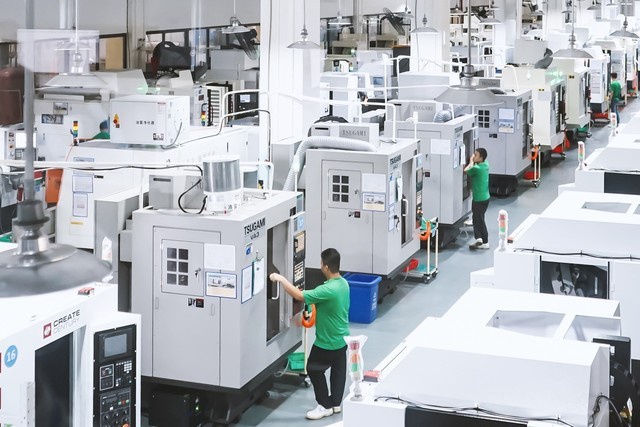The world of CNC (Computer Numerical Control) machining has undergone significant transformations in recent years, driven by technological advancements, evolving market demands, and the push for greater precision and efficiency. As industries continue to adopt more sophisticated production techniques, CNC machining has remained at the forefront, offering unparalleled accuracy and versatility for manufacturing processes.

1. Integration of Automation and Robotics
One of the most notable developments in the CNC machining industry is the integration of automation and robotics. Manufacturers are increasingly turning to robotic arms, automated loading systems, and advanced software to streamline operations and reduce human error. Automation enhances productivity by allowing machines to run 24/7, minimizes downtime, and ensures consistent part quality, all while reducing labor costs. This trend is particularly evident in high-volume production environments where speed and consistency are crucial

2. Adoption of AI and Machine Learning
Artificial Intelligence (AI) and machine learning (ML) are making their mark on the CNC machining industry by improving decision-making processes and enhancing predictive maintenance. AI-powered software tools can analyze vast amounts of data from machining operations to identify patterns, predict tool wear, and optimize cutting parameters. This results in improved operational efficiency and reduces costly unplanned downtime, ensuring that CNC machines operate at their highest capacity.

3. Additive Manufacturing (3D Printing) Synergy
Although traditionally distinct, additive manufacturing (3D printing) and CNC machining are beginning to converge in many applications. Hybrid machines that combine both subtractive (CNC) and additive (3D printing) technologies allow manufacturers to produce complex parts with greater design freedom and less waste. This integration opens up new possibilities, particularly in industries such as aerospace and automotive, where both precision and customization are key

4. Growth of Smart Manufacturing
The concept of smart manufacturing is gaining momentum, with CNC machining being a key component of this transformation. The Internet of Things (IoT) has become an integral part of many modern CNC machines, allowing for real-time monitoring of machine conditions, part production status, and overall performance. This connectivity enables manufacturers to collect valuable data that can be used to optimize operations, reduce downtime, and improve product quality.
Moreover, cloud computing has further enhanced the capabilities of CNC machining, enabling remote access to machine data and real-time collaboration between design, engineering, and production teams. The ability to track machine performance and make adjustments from anywhere has become a key feature of modern smart factories.

5. Precision and Miniaturization
As demand for more precise and miniaturized components continues to grow across various industries, CNC machining is evolving to meet these needs. The aerospace, medical device, and electronics sectors, in particular, are driving demand for smaller, more intricate parts that require tight tolerances.
Advanced CNC machines are now capable of achieving higher precision levels, with some systems offering micron-level accuracy. This has been made possible through developments in machine design, precision tooling, and cutting-edge software algorithms that enable finer control over the machining process.

6. Sustainability and Green Manufacturing
The push for sustainability in manufacturing has also influenced the CNC machining industry. As industries strive to reduce waste, lower energy consumption, and minimize their environmental footprint, CNC machining is evolving to become more sustainable. Companies are adopting new technologies that improve material utilization, such as optimized toolpaths and advanced cutting strategies that reduce excess material waste.
Furthermore, more companies are focusing on energy-efficient CNC machines that consume less power during operation. Advances in cooling systems, energy recovery, and machine design have contributed to reducing the overall environmental impact of machining operations.

7. The Rise of On-Demand and Custom Manufacturing
In an era where speed and customization are increasingly in demand, on-demand and custom CNC machining services are gaining popularity. Many businesses are turning to CNC service providers that offer low-volume, high-precision custom parts on a per-order basis, rather than committing to large-scale production runs. This trend is particularly noticeable in industries like automotive and consumer goods, where companies are looking for more flexible and cost-effective ways to manufacture unique components or prototype new designs.
Additionally, the rise of online CNC service platforms has made it easier for small and medium-sized businesses to access high-quality CNC machining services without the need to invest in expensive equipment. These platforms provide customers with instant quotes, lead time estimates, and direct communication with CNC machine shops, further driving the growth of on-demand manufacturing.

8. Increased Focus on Skilled Labor and Training
As CNC machining technology becomes more sophisticated, the demand for skilled workers is also increasing. Operating and programming CNC machines requires expertise in both mechanical engineering and advanced software tools. To meet this demand, companies are investing in employee training programs, apprenticeships, and partnerships with educational institutions to develop a pipeline of skilled labor.
This emphasis on workforce development is essential as the industry faces the dual challenge of an aging workforce and the need to adapt to rapidly changing technologies. By equipping workers with the skills needed to manage advanced CNC systems, manufacturers can ensure that they remain competitive in a dynamic market.